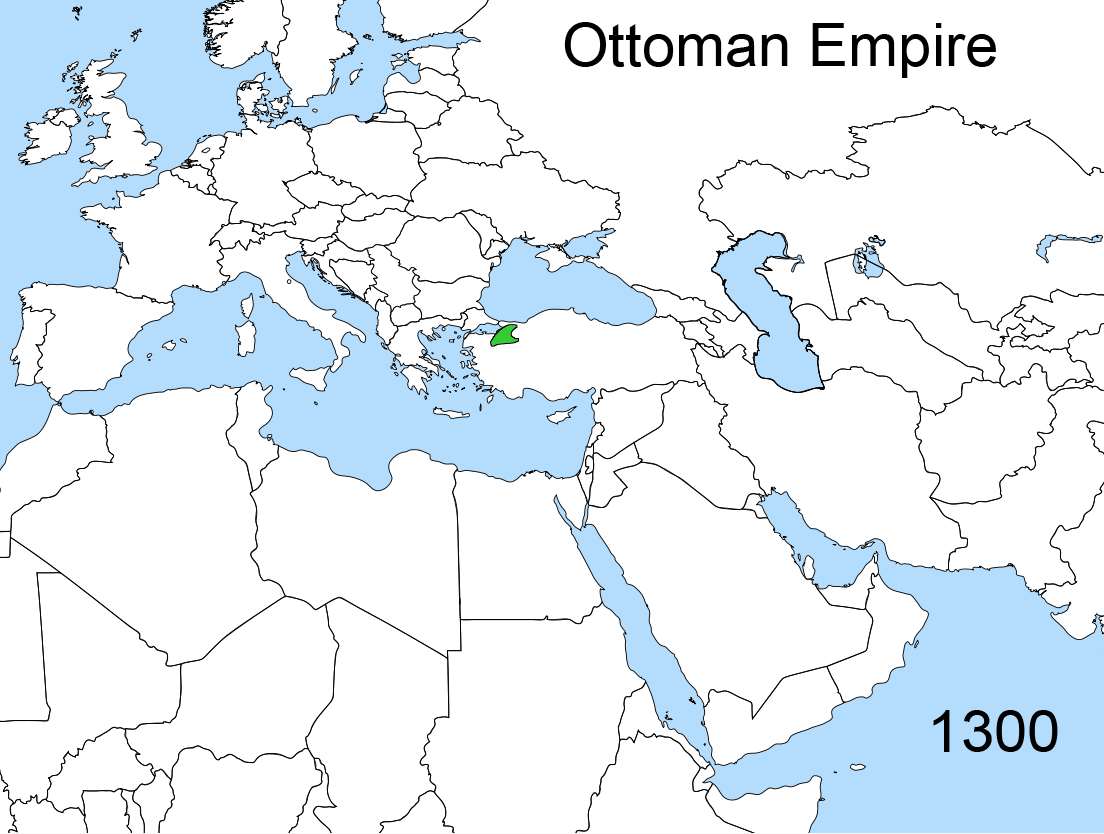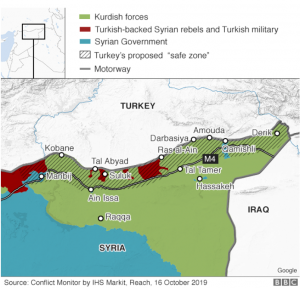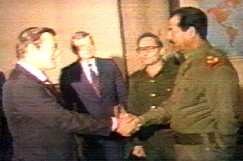In 636 AD Islam’s era-marking Battle of Yarmouk against the Roman occupied Byzantine states of Syria, Palestine, and Lebanon.
637 AD Battle of Qadasiya first milestone in conquering Iraq over the next dozen years. Within a few years the Muslims had also conquered parts of Egypt to the South and Asia Minor and Armenia to the North.
In 638 ce, Sophronius, the Patriarch of Jerusalem, peacefully surrendered the city and the welfare of the Christian community to the Second Caliph Omar bin Al- Khattab in person. In an age when conquest was often characterised by intolerance and violence towards a conquered community, the terms of surrender of Jerusalem, which is known as the Pact of Omar, were generous and humane:
In the Name of God, the Compassionate, the Merciful.
This is what the servant of God, Omar bin Al-Khattab, the Commander of the Faithful, has offered the people of Jerusalem: their security, granting them protection for their selves, their money, their churches, their children, their lowly and their innocent, and the remainder of their people. Their churches are not to be taken, nor are they to be destroyed, nor are they to be degraded or belittled, neither are their crosses or their money, and they are not to be forced to change their religion, nor is any one of them to be harmed.
We can’t miss that he is a Savior.
But is he an Antichrist?
This is not a religious question so much as it is a political question. For Antichrist, religion is a means to a political end.
There is no question that e God used the Persian Empire to provide both salvation and tribulation to Israel, depending on her relationship to him .
Just like Christianity and Judaism, Islam split into more or less righteous or corrupt political factions.
“The original schism between Islam’s two largest sects was not over religious doctrine. It was over political leadership.”
The Hashemites, or “Bani Hashem” are descendants of…the Prophet Ismail…the son of the Prophet Ibrahim (Abraham)….“Hashem”…was the great-grandfather of the Prophet Muhammad. The Hashemites are thus the direct descendants of the Prophet through his daughter Fatima and her husband Ali bin Abi Talib, who was also the Prophet’s paternal first cousin and the fourth caliph of Islam…
[W]hen the Islamic Prophet Muhammad died…a debate emerged about who should be his successor…one group (which eventually became the Shiites) felt Muhammad’s successor should be someone in his bloodline, while the other (which became the Sunnis) felt a pious individual who would follow the Prophet’s customs was acceptable.
The great majority — upwards of 85 to 90 percent — of the world’s more than 1.6 billion Muslims are Sunnis…from West Africa to Indonesia…
the Shiites are…in Iran, predominance in Iraq and sizable populations in Syria, Lebanon and Yemen.
A shallow, religion-oriented analysis…dominates…Western thinking about most issues in the Middle East…New York Times columnist Thomas Friedman asserts that the “main issue in the Middle East is the 7th century struggle over who is the rightful heir to the Prophet Muhammad – Shiites or Sunnis…”
Therefore rule from Islam’s holy city Jerusalem.
A pillar of Mohammed’s re-institution of monotheism is jihad, or imposition of YHVH’s / Allah’s righteous rule over the earth, expanded outward into all three previous Empires:
- Babylon/Iraq
- Persia/Iran and India
- the ancient Greek homeland of Asia Minor and Greece
- the Christianized paganism of the European Roman Empire through the land gateway at Constantinople and seaports around the Mediterranean.
When we compare a map of the classical Roman Empire with the same territory during the Middle Ages it is easy to see the Moslem takeover of the south-eastern half of the classical Roman Empire, with the north-western Christian half shrunken down within the boundaries of the Mediterranean Sea.

By the Middle Ages we can confidently assign an Islamic identity to Daniel’s king of the south and a Christian identity to the king of the north.
Seljuq, also spelled Seljuk, ruling military family of the…Turkic tribes that invaded southwestern Asia in the 11th century and eventually founded an empire that included Mesopotamia, Syria, Palestine, and most of Iran. Their advance marked the beginning of Turkic power in the Middle East.
Salah ad-Din Yusuf / Joseph ibn Ayyub / son of Job, known in the Western world as Saladin, played a major role is shaping the middle east of the 12th and 13th centuries...

At the young age of 32 years Saladin had taken control of the Egyptian Sultanate and formed his own Dynasty, the Ayyubids (named for his father).
Understanding that there are repeating cycles of history within the long stretch of history, the following simply focuses on obvious examples, beginning at Daniel 11:9 onward.
“So the king of the south shall come into his kingdom, and [then] shall return into his own land.”
At the death of the Seljuk ruler in Anatolia Saladin took the opportunity to expand into Syria as sole master of the Middle East. At the height of his power, he ruled a unified Muslim region stretching from Egypt to Arabia. He was successful at uniting the Muslim sects against their common enemy, the Christians, and wresting Jerusalem from the Christians in September of 1187.
Back from the Third Crusade Richard the Lionheart would describe him in glowing terms. “His military genius and treatment of Christian prisoners has Saladin as one of the finest knights of his generation, the true embodiment of chivalry.”
“But his sons shall be stirred up, and shall assemble a multitude of great forces: and one shall certainly come, and overflow, and pass through: then shall he return, and be stirred up, even to his fortress.
At Saladin’s death in 1193, like Alexander he divided his empire among his relations. His sons were “stirred up” by a power struggle in which Saladin’s brother, al-˓Adil with “a multitude of great forces” emerged triumphant by 1202 and “stirred up” reorganized Saladin’s inheritance in favor of his own family / fortress. With so much stirring of the pot the Ayyubid dynasty faded away and completely disappeared in one lifetime.
And the king of the south shall be moved with choler, and shall come forth and fight with…the king of the north: and he [the king of the north] shall set forth a great multitude; but the multitude shall be given into his [the king of the south’s] hand. And when he [the king of the south] hath taken away the multitude, his heart shall be lifted up;
In 1453 Sultan Mehmed II of the Ottoman Empire finally achieved to the long-cherished dream of conquering Constantinople. Employing newly invented cannon, the Ottomans breached Constantinople’s ancient land wall. This historic event removed what was once a powerful defense for Christian Europe against Muslim invasion.
“and he [the king of the south, the Ottoman emperor] shall cast down many ten thousands:
The first period of Ottoman history was characterized by almost continuous territorial expansion, during which Ottoman dominion spread out from a small northwestern Anatolian principality to cover most of southeastern Europe and Anatolia. The political, economic, and social institutions of the classical Islamic empires were amalgamated with those inherited from Byzantium and the great Turkish empires of Central Asia and were reestablished in new forms that were to characterize the area into modern times.
At its peak in the 1500s, the Ottoman Empire was one of the biggest military and economic powers in the world, controlling… territory that stretched from the Danube [in the northern king’s domain] to the Nile [in the southern king’s domain], with a powerful military, lucrative commerce, and impressive achievements in fields ranging from architecture to astronomy…

“but he [the Muslim king of the south] shall not be strengthened by it.
the Ottoman Empire succumbed to what most historians describe as a long, slow decline…
only between 5 and 10 percent of its inhabitants could read… the empire had a shortage of well-trained military officers, engineers, clerks, doctors and other professions…
“the king of the south shall be stirred up to battle with a very great and mighty army; but he shall not stand:
Allied with the sure winner Germany in WWI, in the end the Ottoman empire lost nearly a half a million soldiers, most of them to disease, plus about 3.8 million more who were injured or became ill. In
for they…that feed of the portion of his meat [i.e. his highest ranking government officials] shall destroy him.” (Daniel 11:25-26)
During WWI a military officer rose to power by thwarting the Allied invasion of the Dardanelles and subsequently negotiating independence for a newly formed state of Turkey after the European powers divided up the shattered Ottoman Empire. The last Ottoman Sultan was deposed in 1909 by the revolutionary group calling themselves The Young Turks. He took the name Ata-Turk / Father of the Turks – think Ab-rahim / Father of Many Nations – as the first president of the modern Republic of Turkey. Over the next two decades, Atatürk created a modern state that would grow under his successors.
Given its crucial geographical position straddling East and West, and political connections remaining from its 1,000 year old empire status, the United States promptly established diplomatic relations with the new Republic of Turkey, To curry favor with their new ally, the U.S. and other European nations kept their navy ships at sea while the Moslem Turks asserted themselves by massacring 300,000 Christian inhabitants of Smyrna by sword and fire.
As Trifkovic observes… “The moral disarmament of contemporary post-Christian Europe is now nearly universal.”
Turkish foreign policy was wholly based on close relations with the West, particularly the friendship of the United States due to Turkey’s fear of its enormous northern neighbour, the Soviet Union, from its dependence on U.S. military and economic aid, and from its desire to be accepted as a secular, democratic, Western state. Turkey sent troops to fight in the Korean War and joined the North Atlantic Treaty Organization (NATO; 1952) and the Central Treaty Organization (1955).
“the king of the north shall return, and shall set forth a multitude greater than the former, and shall certainly come after certain years with a great army and with much riches.”
The British and the French competed for hegemony with each other in the New World Order by carving out influence in the Middle East and North Africa.
- And in those times there shall many [an alliance of nations] stand up against the king of the south:
- also the robbers of thy people shall exalt themselves to establish the vision [of once again becoming masters of the holy site of Jerusalem]
Among Muslims, the Temple Mount is called Haram al-Sharif (the Noble Sanctuary). They believe it was here that the Prophet Muhammad ascended to the “Divine Presence” on the back of a winged horse—the Miraculous Night Journey, commemorated by one of Islam’s architectural triumphs, the Dome of the Rock shrine. A territorial prize occupied or conquered by a long succession of peoples—including Jebusites, Israelites, Babylonians, Greeks, Persians, Romans, Byzantines, early Muslims, Crusaders, Mamluks, Ottomans and the British—the Temple Mount has seen more momentous historical events than perhaps any other 35 acres in the world.
“And a mighty king [of the north / European shall stand up, that shall rule with great dominion, and do according to his will.
And the king of the south [leader of an alliance of Moslem nations] shall be strong, and one of his [king of the north’s] princes; BUT! his [king of the south’s] sons / followers shall be stirred up, and shall assemble a multitude of great forces: And the king of the south shall be moved with choler, and shall come forth and fight with…the king of the north: and he [king of the south] shall set forth a great multitude;”
On 22–26 July 1952…Egypt’s Gamal Abdel Nasser overthrew [British supported] King Farouk, whom the military blamed for Egypt’s poor performance in the 1948 war with Israel…and declared Egypt a republic on 18 June 1953.
Nasser evolved into a charismatic leader, not only of Egypt but of the Arab world, promoting and implementing “Arab socialism.” In 1958 Egypt joined with the Republic of Syria and annexed the Palestine Government-ruled Gaza Strip to form the United Arab Republic. Although Syria seceded only three years later, Egypt clung to the hope and glory as the UAR for another ten years.
Nasser ruled as an autocrat but remained extremely popular within Egypt and throughout the Arab world because of his willingness to stand up to the Western powers and to Israel. Nasser helped establish the Non-Aligned Movement of developing countries with India and Yugoslavia in September 1961, and continued to be a leading force in the movement until his death. His foreign and military policies were central in provoking the Six-Day War in 1967.
but [yet] the multitude shall be given into his [the king of the north’s] hand. For the king of the north shall return, and shall set forth a multitude greater than the former,
With Western Power’s assistance, the Israelis won the Six-Day War.
and [the king of the north] shall certainly come after certain years with a great army and with much riches. he shall stir up his power and his courage against the king of the south with a great army; and the king of the south shall be stirred up to battle with a very great and mighty army; but he shall not stand: for they shall forecast devices against him.
After Nasser’s death…Vice President Anwar el-Sadat, was elected President of Egypt and the new king of the south.
Sadat engaged in a diplomatic offensive and by the fall of 1973 had support for a war of more than a hundred states, including most of the countries of the Arab League, Non-Aligned Movement, and Organization of African Unity. Syria agreed to join Egypt in attacking Israel.
“through his riches he shall stir up all [his Eastern allies] against the realm of Grecia / Europe, and the king of the south shall be stirred up to battle with a very great and mighty army; but he shall not stand: for they shall forecast devices against him.”
In October 1973, Egypt’s armed forces achieved initial successes as it advanced to the end of the range of safe coverage of its own air force, but after moving his forces deeper into Sinai without air cover, the Egyptian army suffered huge losses.
“Yea, they that feed of the portion of his meat shall destroy him, and his army shall overflow: and many shall fall down slain.” (Daniel 11:26)
On 6 October 1981, Sadat was assassinated during the annual victory parade held in Cairo to celebrate Egypt’s crossing of the Suez Canal. Over three hundred Islamic radicals were indicted in the trial of assassin Khalid Al-Islambuli, including future al-Qaeda leader Ayman al-Zawahiri, Omar Abdel-Rahman, and Abd al-Hamid Kishk.
“And both of these kings’ hearts” (Daniel 11:27)
OBVIOUSLY the narrative has moved on to a new set of Northern and Southern Kings.
shall be to do mischief, and they shall speak lies at one table; but it shall not prosper: for yet the end [of the world] shall be at the time appointed.”
When Turkey’s southern border with Syria was threatened by the rise of militants of the Islamic State in Iraq and the Levant (ISIL or ISIS depending on translation) as well as emboldened Kurdish separatists, from Libya to Nagorno-Karabakh, the Turkish leader has used armed force to advance Turkey’s objectives.
“At the time appointed [not a surprise war but the routine reinforcement of alliances] he [northern king] shall return, and come toward the south;
but it shall not be as the former, or as the latter. For the ships [signifying military power in general] of Chittim / Cyprus shall come against him:” (Daniel 11:29-30)
Cyprus is located only 80 km from the Anatolian coast…Its location makes the island an ideal base for both protecting Turkey and controlling the Eastern Mediterranean area and the Middle East…Thus, Cyprus plays a manifold role in the foreign and military policies of Turkey.
Cracks in Turkey’s relationship with the West emerged when the West failed to intervene in Cyprus on Turkey’s behalf after an attempted coup in 1974. Consequently Turkey broadened its relations, forming a friendship agreement with the Soviet Union in 1978. Cyprus and sovereignty disputes in the Aegean Sea remain major impediments to Turkey’s relations.
Turkey began proactively supporting the democratic movements taking hold across the Middle East during the Arab Spring. Turkey’s control of the headwaters of the Tigris and Euphrates gives it considerable influence over Arab politics. The whole Euphrates River dam system gives Turkey the ability to cut off the supply of water to Syria and Iraq and alternately, the capacity to pump water as far as the water-starved West Bank in Palestine. Control over this essential resource will make Turkey a greater power in the Arab Middle East in the 21st century than it was in the 20th.
“But [President of Turkey] Erdoğan’s real impact on geopolitics…will come in the form of the 21st century pan-Islamism that he has finessed through soft power. The religious revivalism…has filled a void in the larger Muslim world.
Turkey is becoming a superpower
“Turkey has realised the greatest natural gas discovery in its history, “Erdogan told his nation that this gas find is a gift from Allah. “My Lord has opened the door to unprecedented wealth for us,” he said.
In 2022, Russian President Putin proposed creating a Russian “gas hub” in Turkey that would help it reroute exports, after European countries curbed imports over the Ukraine war. Turkey is negotiating the proposal and could leverage its extensive gas infrastructure. Turkey’s diplomacy and control of the straits connecting the Black Sea to world markets put it at the centre of an agreement between Russia, Ukraine and the United Nations.
Simply, it is clear that Turkey has realised their neo-Ottoman ambitions.


